Outside BJP headquarters in New Delhi on Tuesday, dozens of Modi supporters danced to drums and chanted Hindu nationalist slogans, wearing shirts that read “I am Modi’s family” and scarves the color of saffron, the BJP’s official color which is also associated with Hindu nationalism.
Inside, the feeling was less celebratory.
Anxious and disappointed party workers and Modi supporters were glued to the TV screens, awaiting the final results as the supermajority they had hoped for appeared increasingly out of reach. Others were angry.
“Some voters betrayed us. They betrayed Indian tradition,” said Ram Shankar Maharaj, a Hindu priest who had traveled to New Delhi to watch the results from his home in the northern city of Ayodhya, where Modi in January presided over the opening of a grand Hindu temple on a contested holy site.
The Ayodhya constituency that includes the temple was among those that the BJP conceded on Tuesday.
“We should have gotten 500 [seats],” Maharaj added. “India will suffer from this. Had they cleared 400, the country would flourish.”
India’s benchmark stock indices closed at record highs on Monday after exit polls pointed to a thumping victory for Modi, then fell sharply Tuesday as the results became more muddied.
Speaking across from BJP headquarters Tuesday night, Modi claimed victory, saying his alliance was poised to form a government. Rather than focusing on the BJP itself, he mentioned the broader alliance multiple times and praised its leaders.
“This is a victory for the world’s biggest democracy,” Modi said as supporters chanted Hindu nationalist slogans. “This is the first time a government has come back for the third time.”
Congress, the main opposition party, was in a buoyant mood. “This is the people’s victory, and democracy’s victory,” Congress President Mallikarjun Kharge told a news conference.
Regardless of the results, Modi’s ethos of a Hindu-first nation is now deeply entrenched in Indian politics, raising fears among Muslims and other minority groups over how they would fare during five more years of Modi rule.
In Modi’s home seat of Varanasi, which voted Saturday in the last of seven phases of voting, Tasneem Fatma walked out of a polling station wearing a burqa, saying, “We want a united India, not for Hindu, Muslim, Sikh, Isai.”
But Fatma, 20, a business student, was interrupted by an older man who said there was no religious divide. He also dismissed Fatma’s concerns about unemployment, saying, “If you are educated and if you are capable of the job, you can take the job.”
As the discussion grew more heated, police officers asked the man to leave before NBC News could ask for his name.
India’s election is considered the world’s largest, with nearly a billion eligible voters and polling that spanned over six weeks. But it was not just the sheer size of the election that posed a challenge for officials.
Voting has taken place amid unusually high temperatures that have exceeded 120 degrees in New Delhi, the capital, and experts say that may have depressed turnout. At least 33 people in three states died of suspected heatstroke just on Friday, Reuters reported, including election officials who were on duty.
Although Indian summers are generally hot, scientists say heat waves in India and elsewhere in South Asia are becoming hotter, longer and more frequent at least partly as a result of climate change. Neither the BJP nor the opposition said much about climate change during the campaign.
The issue foremost in the minds of voters who spoke with NBC News was jobs.
It’s an especially big worry for those ages 15 to 29, who make up 83% of unemployed people in India, according to a report in March.
“Why is nobody talking about rising costs or lack of jobs or poor kids dying or trees being cut?” Fatma asked.
The opposition, led by the Congress party, has tried to use such issues to drive voters away from Modi. Aware of the gargantuan effort it would take to defeat him, the fractured opposition formed an alliance that quickly faltered.
Opposition parties also accused Modi’s government of trying to stifle their campaigns by arresting their leaders and freezing their funds, allegations the BJP denied.
Today’s India is run by “a very strong, dominant BJP, which in 1984 had only got four seats in Parliament,” said Yamini Aiyar, former chief executive of the Center for Policy Research, a highly regarded think tank in New Delhi that has been targeted by a Modi government crackdown on civil society.
In recent years especially, she said, the BJP has become “creepingly authoritarian.”
“Our democracy is at stake,” Aiyar said.
According to Freedom House, a nonprofit pro-democracy organization in Washington, elections in India are generally considered free and fair, but they are being held in an environment in which freedom of expression is shrinking.
It cited the arrests and prosecutions of journalists, information manipulation using artificial intelligence and other technologies, and Indian authorities’ demands that social media companies remove online content critical of the government, among other issues.
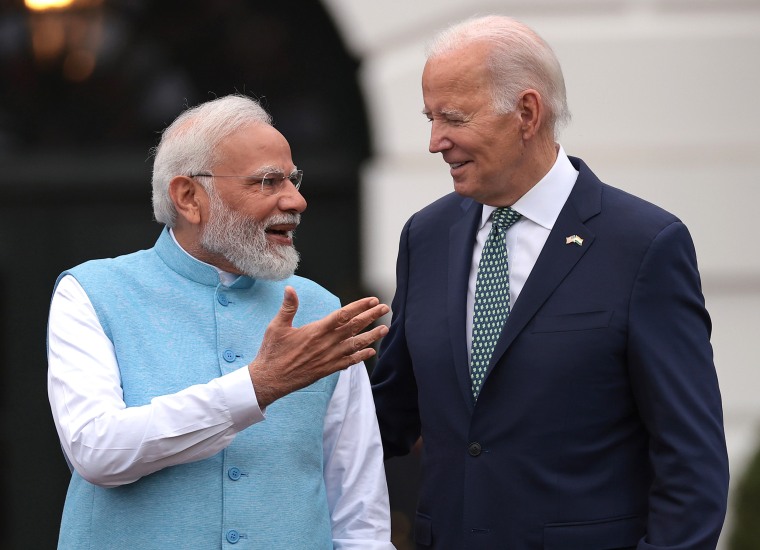
Modi’s shaky rights record can make things awkward for Washington, which views India as an important counterweight to China. Though India is not a formal U.S. ally, it is an important defense partner and a member of strategic security groupings such as the Quad, which also includes the U.S., Australia and Japan.
Modi, who rarely takes live questions from journalists, pushed back against criticism at a joint news conference with President Joe Biden during a state visit to Washington last year.
“In India’s democratic values, there’s absolutely no discrimination, neither on basis of caste, creed or age or any kind of geographic location,” he said.
U.S. authorities also say Indian agents may have been involved in the attempted assassination last year of a Sikh activist living in New York. India denies the allegations, saying such a crime would be “contrary to government policy.”
Experts say the U.S. relationship with India will continue to strengthen, regardless of the final election results in either country.
“China remains the elephant in the room or the presence that is shaping the alignments and realignments across the world,” Aiyar said.


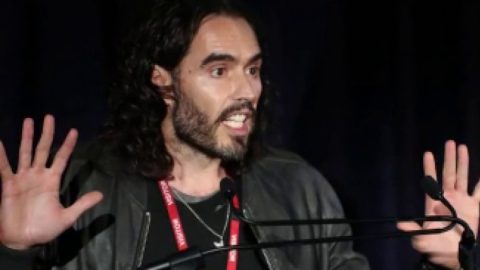

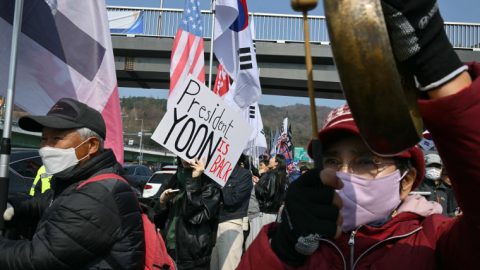

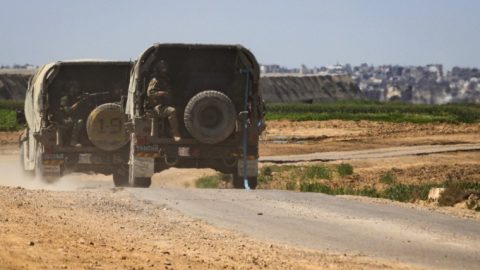
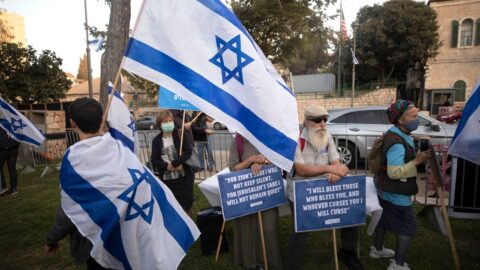
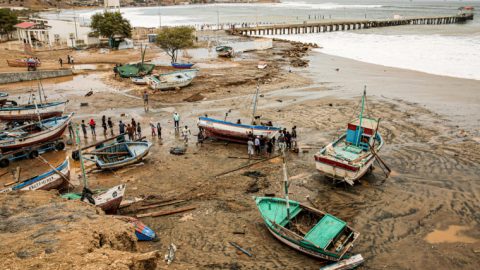
Recent Comments